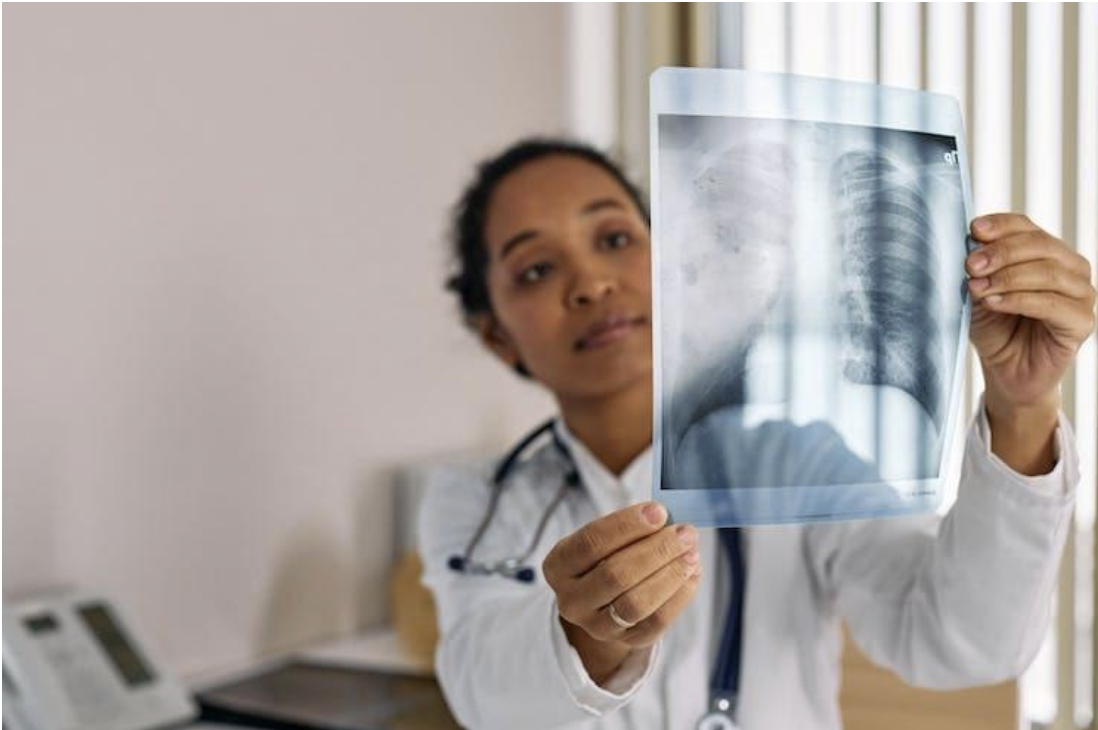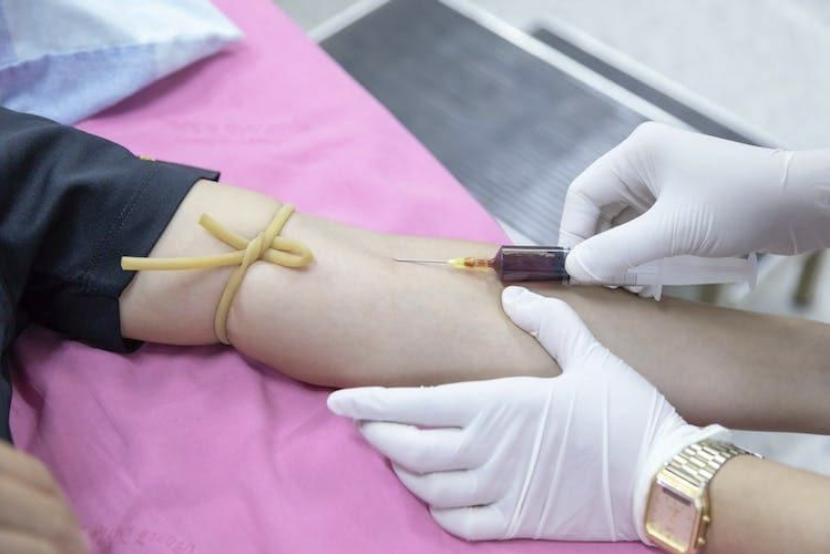To live a healthy life, start with regular cancer screenings and check-ups!
2023-04-27
In recent years, cancer has become a major public health issue worldwide. Therefore, early detection and screening for cancer have become increasingly important. However, many people are unclear about the key items for cancer screening. In this article, we will explore the main elements of cancer examination and screening, as well as their significance. Let's learn more about how to prevent and diagnose cancer early!
Common Cancers: Lung Cancer, Liver Cancer, and Colorectal Cancer Rank the Highest in Mortality Rates
Among common cancers, lung cancer, liver cancer, and colorectal cancer have the highest mortality rates. The incidence of these cancers has continuously risen. According to the Ministry of Health and Welfare's statistics on causes of death for 2021, factors contributing to the high cancer incidence in Taiwan include an aging population, unhealthy lifestyles, and insufficient promotion of cancer screening. Cancer is not just an individual's problem, but a societal issue that requires collective effort for prevention and awareness. Therefore, prioritizing cancer screening and treatment to enable early detection and early treatment is a crucial measure for everyone to maintain physical and mental health.

Four Cancer Screenings: Colorectal Cancer, Breast Cancer, Cervical Cancer, Oral Cancer
The term "Four Cancer Screenings" refers to screenings for colorectal cancer, breast cancer, cervical cancer, and oral cancer. According to data, more than 10,000 people die from these four types of cancer each year, with the number of deaths increasing annually. Screening can help detect cancers or precursors at an early stage, effectively reducing cancer mortality rates. It is recommended to undergo screenings every two years for colorectal cancer, breast cancer, and oral cancer. For cervical cancer, the Ministry of Health and Welfare offers free cervical smear tests annually for women over 30 years old. Additionally, women of any age who have been sexually active are advised to have a regular cervical smear test every 1 to 3 years, and older women should also undergo regular cervical smear examinations.
To get screened, individuals can take advantage of the free health screenings provided by the National Health Administration under the Ministry of Health and Welfare. This service allows the public to undergo early cancer screenings with less financial burden, effectively reducing the harm caused by cancer.
Fecal Occult Blood Test: Colorectal Cancer Screening Item
The fecal occult blood test is a simple way to screen for colorectal cancer in asymptomatic individuals. Generally, the public is advised to undergo this test once every two years, which can reduce mortality by 20-30%. If individuals experience symptoms such as blood in the stool, mucus in the stool, changes in bowel habits, thinner stools, or weight loss, they should seek help from a specialist for necessary examinations, such as a colonoscopy, regardless of whether the fecal occult blood test results are negative. Given that colorectal cancer has the highest incidence in Taiwan and ranks among the top three cancers in mortality rates, regular cancer screenings are crucial for everyone. Early detection of cancer symptoms allows for timely treatment. Meanwhile, the government also provides subsidies for prevention and chemotherapy for certain groups, allowing the public to utilize this policy for cancer prevention and treatment.
Mammography: Breast Cancer Screening Item
Mammography is one of the screening methods for breast cancer. It uses low-dose X-rays and imaging techniques to detect pathological changes in the breast, such as tumors and cysts. This examination can help detect breast cancer early, improving cure rates and reducing mortality rates. In addition to mammography, other examination methods include ultrasound, magnetic resonance imaging, and cancer factor tests. Although mammography is an important method for screening breast cancer, it also has some limitations and risks, such as the potential for increased breast cancer risk due to high radiation exposure. Therefore, it is important to consult a specialist and make an informed decision before undergoing the procedure.

Cervical Cancer Screening: Pap Smear, HPV Test, Cervical Cytology Examination
Cervical cancer screening is a very important aspect of cancer checks and screenings. It includes the Pap smear and the Human Papillomavirus (HPV) test, both of which can detect early signs of cervical cancer. Additionally, cervical cytology examination is also a common screening method. Through these screening approaches, it is possible to detect precancerous changes in the cervix early on, providing opportunities for early treatment. Therefore, women should undergo regular cervical cancer screening to maximize the protection of their health.
Oral Mucosal Examination: Preventive Measures for Betel Nut Chewers and Smokers
The oral mucosal examination is an important screening item concerning oral health, especially for those who chew betel nuts or smoke, as these groups are at a higher risk of developing oral cancer. Regular oral mucosal examinations allow doctors to visually or physically examine the oral mucosa for any suspicious precancerous lesions or related symptoms. It is recommended that individuals who have chewed betel nuts undergo regular check-ups; even if they have quit, prevention should not be overlooked. Through educational services provided by physicians, betel nut chewers and smokers can receive relevant health guidance to reduce the risk of precancerous lesions and cancer. Developing healthy habits such as quitting betel nut chewing, not smoking, and refraining from alcohol consumption are also crucial measures in the prevention of oral cancer.

Government Cancer Subsidy: Funding for Prevention and Chemotherapy
The government provides free screening programs for four major types of cancer and also offers funding for cancer prevention and chemotherapy. People can visit clinics or hospitals for screening or treatment based on their individual situations and needs. The purpose of this funding is to raise awareness and emphasize the importance of cancer, helping more individuals to detect and treat cancer early, thereby lowering the post-treatment mortality rate. This government subsidy policy is significant for improving the overall health standards of society and alleviating the financial burden on families. It is essential for people to be aware of the potential occurrence of cancer and to undergo timely screenings and treatments in order to maximize the protection of their health.
The benefits and drawbacks of cancer screening
The advantages of cancer screening lie in the ability to detect and treat cancer early, which can improve treatment outcomes and reduce mortality. The government's four major cancer screening programs have provided services to over 5 million people, managing to identify more than 10,000 patients who have cancer but have not yet been diagnosed each year, as well as 50,000 individuals with abnormal conditions for early treatment and intervention to prevent progression to cancer.
However, cancer screening also has some disadvantages, such as false positives, overdiagnosis, and overtreatment. False positives may misclassify healthy individuals as patients, causing unnecessary psychological stress and medical expenses. Overdiagnosis and overtreatment can also harm the body. Depending on individual physical conditions, different screening methods have their own advantages and disadvantages. Physicians need to choose the appropriate screening method based on individual circumstances. In summary, cancer screening is a very important task that should be carried out with a thorough understanding of its pros and cons.
Taking mammography as an example, while it can detect breast cancer early, reduce mortality, and improve treatment outcomes, there are also drawbacks. Firstly, due to the presence of radiation, long-term exposure to mammography may increase the risk of developing breast cancer. Secondly, this type of screening cannot diagnose breast cancer with 100% accuracy and may mistakenly categorize benign nodules as cancer, leading to unnecessary worry and treatment. Therefore, it is essential to carefully consider one's health risks and family history and consult a doctor before deciding to undergo cancer screening.
Can routine health checks detect cancer?
Health checks are a very important habit in life, but can they detect cancer? While general full-body health checks can detect some cancer-related indicators, such as cancer markers, they do not comprehensively screen for cancer. Early signs of some cancers, like coughing in lung cancer or indigestion in stomach cancer, are often overlooked and hard to identify. Therefore, specialized cancer screenings and tests are more effective than routine health checks in accurately detecting early-stage cancers and their precursors. However, regular comprehensive health checks remain highly valuable, as they can help identify other diseases early and maintain good health, thereby reducing the risk of cancer.

How to conduct a comprehensive cancer screening for the whole body?
For those looking to undergo a thorough cancer screening, it is recommended to first check for common cancers and the four major cancer screening items, such as colorectal cancer, breast cancer, cervical cancer, and oral cancer. Additionally, based on individual factors such as age, gender, health condition, and medical history, appropriate blood tests, urine tests, X-ray examinations, and CT scans can be performed. Furthermore, regular health check-ups, such as measuring blood pressure, blood sugar, cholesterol, and BMI, are also important for screening tumors and other diseases. Most importantly, maintaining a healthy lifestyle—such as not smoking, not drinking alcohol, eating a balanced diet, and developing a moderate exercise routine—can effectively prevent and reduce the occurrence of cancer.
Conclusion: The importance of cancer screening and prevention
From the above, we know that cancer detection can help in the early identification of cancer or its precancerous lesions, thereby reducing mortality rates and the likelihood of precancerous conditions progressing to cancer. The government also provides various forms of cancer subsidies to encourage the public to undergo preventive measures and treatments such as chemotherapy. In addition to the official four major cancer screening projects, mammography, cervical cancer screening, oral mucosa examinations, and other important screening items, it's crucial to balance the risks and benefits associated with screenings. Overall, cancer screening and prevention are very important, especially for those with a family history of cancer. Everyone should pay attention to their health status and regularly undergo relevant examinations.
References:
1. Introduction to Cancer Screening | Ministry of Health and Welfare
2. After Cancer Diagnosis, what social resources can help me? | Taiwan Cancer Foundation



